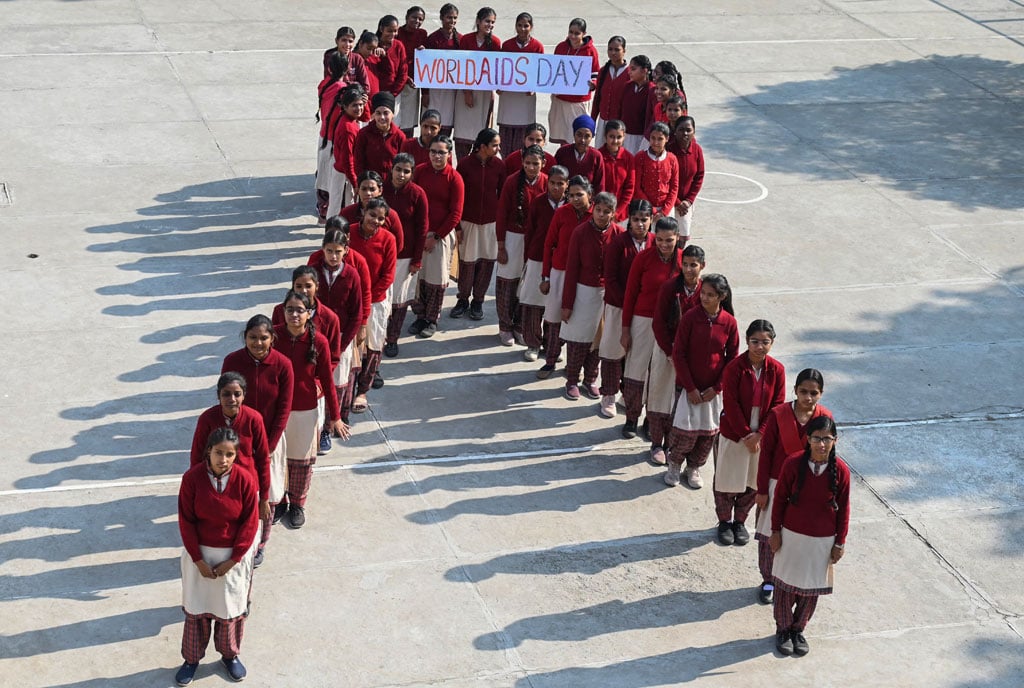Rise in new HIV/Aids infections among women worries leaders

Fort Portal Deputy Mayor Betty Mujungu addresses stakeholders during a meeting on HIV/Aids in the city on Tuesday. Photo/ALEX Ashaba
What you need to know:
Stakeholders say if this pattern is not addressed urgently, it could pose a significant burden on the city’s efforts to eradicate the scourge by 2030.
Stakeholders and leaders in Fort Portal City have expressed concern over the rising number of HIV/Aids infections among women.
Despite the HIV/Aids prevalence rate remaining at 17 percent in Fort Portal City, there is an alarming trend of new infections being registered in women than in men.
The stakeholders stress that if this pattern is not addressed urgently, it could pose a significant burden on the city’s efforts to eradicate the scourge by 2030.
Ms Evan Amara, the HIV/Aids focal person for Fort Portal City, said the current number of people living with HIV/Aids is 20,848, of which 12,924 are women (62 percent) and 7,922 are men (38 percent) as of December 2023.
Between October and December 2023, at least 237 new HIV/Aids cases were registered, of which 100 were male and 137 were female from 13 health facilities in the city.
Out of 237 new infections, 27 were recent infections (acquired within the past 12 months), and 15 of them were among individuals aged 20 to 34, indicating a concerning trend of increasing infections among the youth.
Among the 13 facilities accredited to offer HIV/Aids services, Fort Portal Regional Referral Hospital caters for the highest number of people living with HIV/Aids, totalling 8,134 individuals, of which 5,134 are women and 3,001 are men.
Virika Hospital, a private facility, follows with 3,336 cases, comprising 2,254 females and 1,082 males.
Kabarole Church of Uganda Hospital ranks third with 2,726 cases, including 1,831 females and 895 males. Bukuku Health Centre IV has 1,574 cases, with 989 females and 585 males, while Kataraka Health Centre IV reports 1,171 infected individuals, consisting of 720 females and 451 males.
During a meeting between officials from the Ministry of Health and leaders from Fort Portal City on Tuesday, the stakeholders blamed the trend on women’s vulnerability and exposure, which they said places them at a heightened risk of contracting infection.
They cited the increase in the number of sex workers and the low uptake of condoms.
Ms Moreen Kyobutungi, a sex worker and the executive director of the Kabarole Women Health Initiative, said the majority of sex workers in Fort Portal City are below the age of 18.
She blamed the influx of sex workers on poverty and domestic violence.
“Majority of the men, after buying us from the streets and reaching the lodge, don’t want to use condoms, and some of the girls are infected with HIV/Aids in the process, and when they return on the street they also spread it to others,” Ms Kyobutungi said.
She added that some men have abandoned their responsibilities to their families, forcing the women to engage in sex work to fend for their families.
“Many mothers bear the heavy burden of caring for their families, using fees collected from men after engaging in sexual activities. Some young girls, facing domestic violence at home, turn to the streets for financial support and engage in unprotected sex,” Ms Kyobutungi said.
According to data from the Ministry of Health concerning sex workers in Fort Portal City, 45 percent of them are living with HIV/Aids.
Ms Margie Nakate, another sex worker, said many of her colleagues are school dropouts.
“On the streets, we have many girls who are 15 years old; some were married and later separated from their husbands. They come to the streets to earn money to support their children. If these individuals can be economically empowered, they can leave the streets,” Ms Nakate said.
Rev Sarah Kakyo from Ruwenzori Diocese attributed the rise in new infections to cross-generational sex.
“Some older men who are infected with HIV/Aids nowadays seek relationships with young girls, seducing them with money. In turn, these young girls, desiring quick money, engage in relationships with these men and end up contracting the infection,” Rev Kakyo said.
The deputy mayor of Fort Portal City, Ms Betty Mujungu, stressed the need for behaviour change and addressing stereotypes in the Tooro Sub-region.
“People have a misguided notion that Batooro people are inclined to have sex at an early age, which is incorrect, and we condemn it. It’s not in our culture. There are numerous stereotypes and public messages that need debunking because such misconceptions lead to the spread of HIV/Aids,” she said.
She urged the Ministry of Health to consider rebranding HIV/Aids messaging for the public, saying the current generation prefers receiving information through songs and dramas rather than traditional radio talk shows.
Background
Last year, the Uganda Aids Commission revealed that more than two-thirds of the 30,000 new HIV infections reported among young women in the country in 2022 occurred in the ages 15 to 25.




